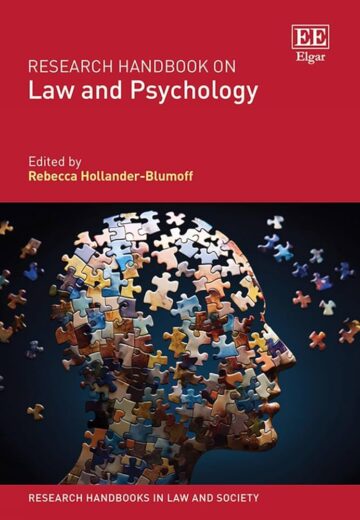This research handbook presents a kaleidoscopic view of law and psychology as a multidisciplinary field of study and explores major themes at the intersection of these two scholarly traditions. Adopting an expansive approach, it examines important topics including theories of justice, morality, and legitimacy; social norms; system justification theory; and the role of emotion within law.
Featuring contributions from a diverse array of expert academics, the book showcases a number of sophisticated methodologies including field research, survey work, and novel statistical analyses. It explores not only how psychological research can affect legal doctrine and theory but also how legal doctrine and theory ought to influence psychological research. Individual chapters survey key areas such as jury decision-making, eyewitness testimony, false confessions, juvenile justice, and the role of social science research and standards of proof in the courtroom. Recently developed perspectives on law and psychology are also critically examined, demonstrating how decision-making processes can play a variety of roles in legal contexts.
Thought-provoking, innovative, and authoritative, this research handbook will prove indispensable to academics, researchers, and students in law and social and behavioral psychology. Legal practitioners looking to better understand the close relationship between law and psychology, which both take human behavior as their fundamental and core concern, will similarly benefit from this important resource.
